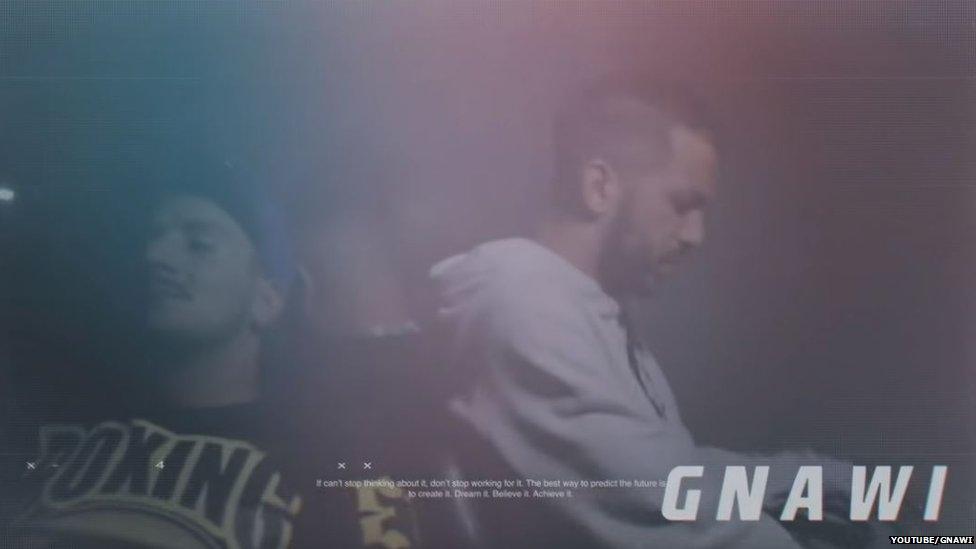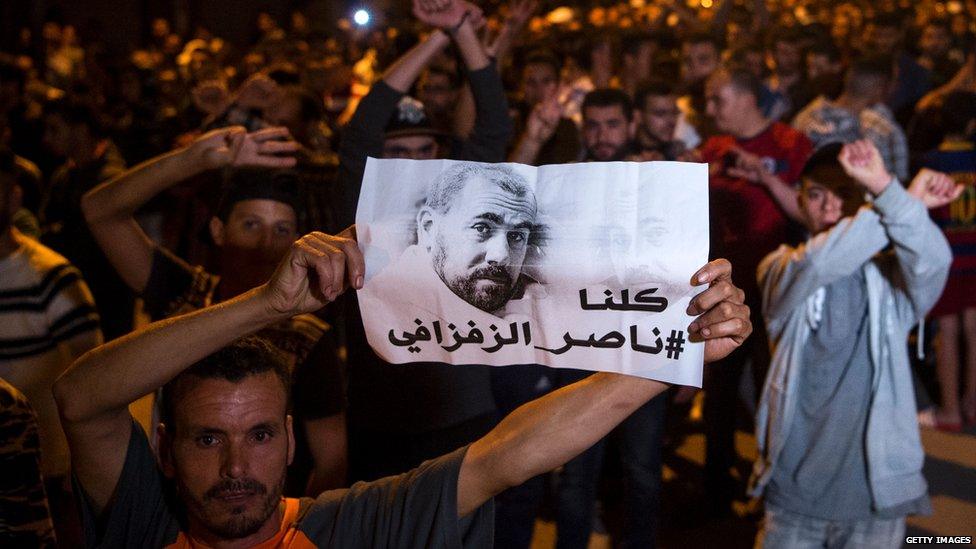Viral rap song highlights Morocco monarchy taboo
- Published

The video has racked up over 13 million views in two weeks
A rap song deemed critical of the king, external has sparked debate and anger in Morocco on the eve of the trial of one of its singers.
Mohamed Mounir, widely known as Gnawi, was arrested at the start of the month, and his lawyer says he will next appear in court on 25 November., external If convicted, he faces up to two years in jail and a fine.
The Moroccan authorities have denied that the rapper's arrest was prompted by the song, saying it was based on a previous YouTube video in which he insults the police.
But the arrest came two days after the song was released, prompting public suspicion that the two are directly linked.
You may also be interested in:
Khadija Anani of the Moroccan Human Rights Association thinks the arrest is "an act of revenge, external that shows the decline in freedom of expression" in the country.
Amnesty International describes Gnawi's arrest as an "outrageous assault on free speech, external", and calls for him to be set free.
'Long Live the People'
One aspect of the song Long Live the People that has attracted media attention is what Amnesty calls a "derogatory reference to the king", in particular the word "n'ayyish" - a disproving response to the traditional call of Long Live the King.

Gnawi could face up to two years in jail and a fine
Insulting the king is a criminal offence in Morocco, and a taboo subject in public.
Even media critical of the monarchy like the Lakome website said the lyrics are "harsh" and "crossed several red lines, external".
The song refers to social unrest since 2011, when the country experienced its own version of the Arab Spring, as well as protests in neighbouring Algeria that brought down the government earlier this year.
The lyrics also mention "the man from the Rif" and "the free man behind bars", in what is widely seen as a reference to protests in Morocco's impoverished north and their leader Nasser Zefzafi, whose 20-year jail sentence last year prompted international condemnation.
'Unique impact'
The video has gathered over 13 million views on YouTube, which comes close to the number of people who voted in the country's last election.
"We are faced with a political song the likes of which Morocco has never known, external in terms of clarity, directness, strength of message, and speed of spread," wrote the Al Youm 24 website.
Since it was first posted on social media on 29 October, thousands of people have responded to the song - mostly in appreciation.
"That's it, everything is said in this video," one person wrote on Facebook.

Zefzafi is among dozens of activists jailed following protests in the northern Rif region
Another one gave a thumbs up to the song's defiant message in the face of "the malice of the repressive regime".
One of the stronger comments warns officials who live in palaces that "the revolution of the hungry will burn" them.
A message posted on Gnawi's behalf on Facebook to say he is in good health has received huge support - in the shape of sad and heart emojis, shares and comments calling for the rapper's release.
Morocco adopted a set of new laws governing the media and freedom of expression in 2016, but the authorities are still accused of punishing critical journalists, bloggers and members of the public who focus on the king, religion or the state., external
Reporting by Vera Le Quesne-Papic and Krassi Twigg
Next story: Segregation warning for Estonian capital
Use #NewsfromElsewhere to stay up-to-date with our reports via Twitter, external.